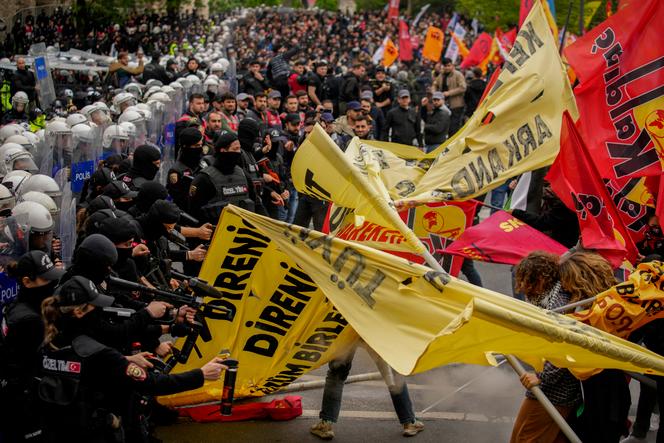


Rarely has there been such a deployment of force on May Day in Istanbul. Everywhere from the banks of the Bosphorus to the historic peninsula of Sultanahmet, streets were closed, armored vehicles deployed, and police barriers, cordons, and checkpoints. No bus, metro, tramway or boat was allowed into the central districts of Beyoglu, Fatih and Sisli. The city awoke on Wednesday morning as if under siege. A strange procession of foreign tourists could be seen dragging their suitcases on wheels along the desperately empty main roads, in search of an unlikely cab.
The day before, the governor of Istanbul had drawn up a list of roads and public transport stations that were to be rendered inaccessible from 5.30 am, forcing several opposition parties and labor unions to change their meeting points. Interior Minister Ali Yerlikaya announced the deployment of 42,000 police officers in the city, more than double the number from previous years, pre-emptively denouncing what he called "terrorist organizations [who want] to turn May 1 into a field of action and propaganda." On Wednesday, according to a report from his ministry, 210 people were arrested, before they even got close to the square.
Early on, images of the first arrests of groups of activists, most of them very young, were shared on social media – members of left-wing and far-left parties trying to reach Taksim, where demonstrations have been banned since the Gezi uprising (named after the park located on the square) was crushed by Recep Tayyip Erdogan's government in 2013.
Taksim is also the most highly symbolic place in Turkish social, labor and political history. In 1977, the traditional May Day demonstration in Taksim ended in a bloodbath. Shots fired from several buildings were followed by panic, resulting in 34 dead and 136 injured. Following the tragedy, demonstrations were systematically banned from the square for over three decades.
This year, trade unions and opposition parties, including the Republican People's Party (CHP), called for demonstrations in the historic square. Galvanized by their victory in the March 31 municipal elections, which were a major setback for the ruling Islamo-nationalist coalition for the first time, the groups opposed to the policies of Erdogan's government were keen to leave their mark on the day. It would be a march, according to the statements, against "poverty and hunger" and the implementation of "another policy to get the country out of the crisis and its authoritarianism." But it was in vain.
You have 43.82% of this article left to read. The rest is for subscribers only.
